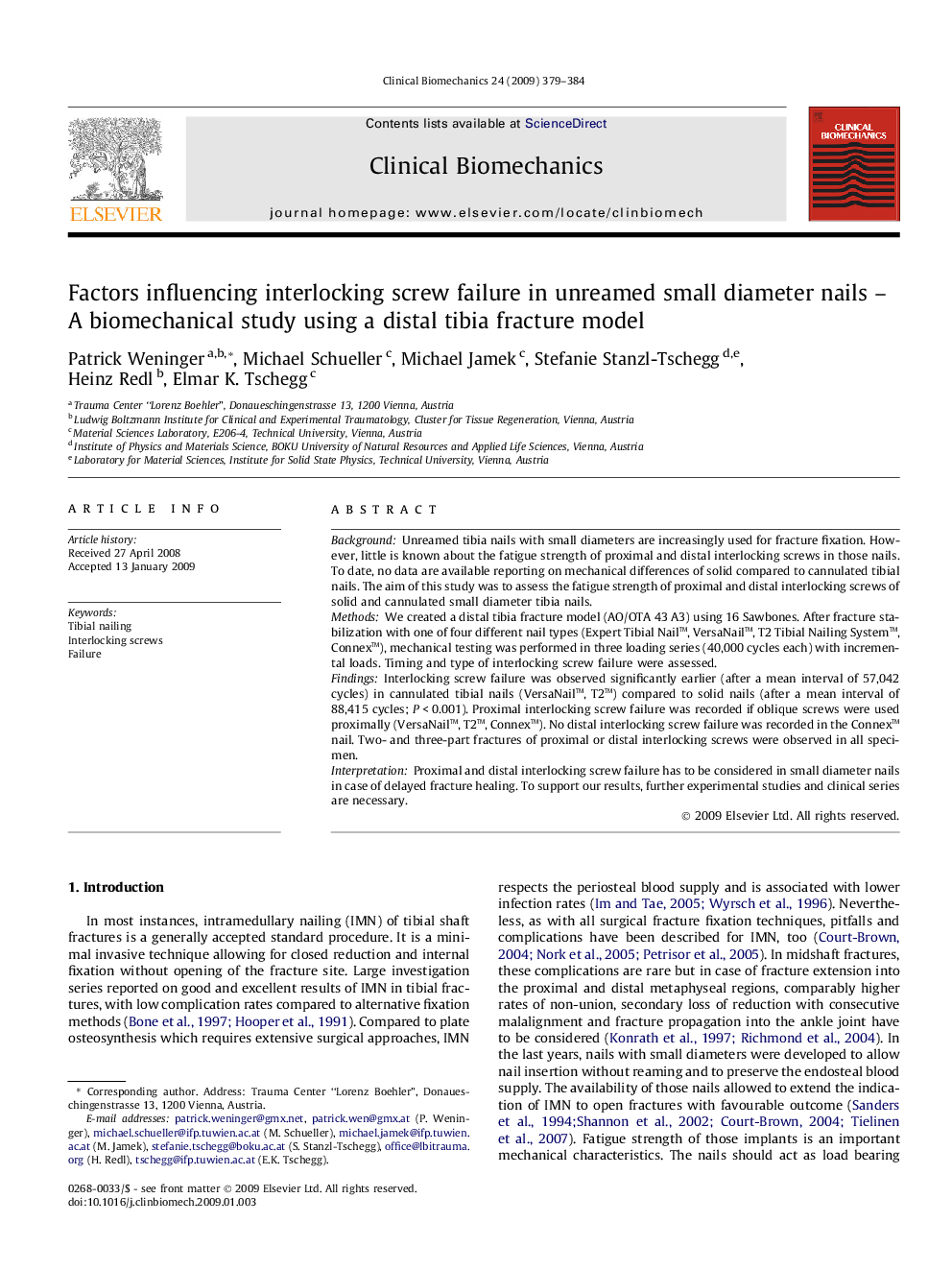| Article ID | Journal | Published Year | Pages | File Type |
|---|---|---|---|---|
| 4050808 | Clinical Biomechanics | 2009 | 6 Pages |
BackgroundUnreamed tibia nails with small diameters are increasingly used for fracture fixation. However, little is known about the fatigue strength of proximal and distal interlocking screws in those nails. To date, no data are available reporting on mechanical differences of solid compared to cannulated tibial nails. The aim of this study was to assess the fatigue strength of proximal and distal interlocking screws of solid and cannulated small diameter tibia nails.MethodsWe created a distal tibia fracture model (AO/OTA 43 A3) using 16 Sawbones. After fracture stabilization with one of four different nail types (Expert Tibial Nail™, VersaNail™, T2 Tibial Nailing System™, Connex™), mechanical testing was performed in three loading series (40,000 cycles each) with incremental loads. Timing and type of interlocking screw failure were assessed.FindingsInterlocking screw failure was observed significantly earlier (after a mean interval of 57,042 cycles) in cannulated tibial nails (VersaNail™, T2™) compared to solid nails (after a mean interval of 88,415 cycles; P < 0.001). Proximal interlocking screw failure was recorded if oblique screws were used proximally (VersaNail™, T2™, Connex™). No distal interlocking screw failure was recorded in the Connex™ nail. Two- and three-part fractures of proximal or distal interlocking screws were observed in all specimen.InterpretationProximal and distal interlocking screw failure has to be considered in small diameter nails in case of delayed fracture healing. To support our results, further experimental studies and clinical series are necessary.
